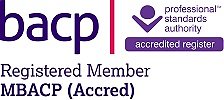Frequently Asked Questions
What happens in the initial consultation?
I believe that a good relationship between therapist and client has a big impact on the effectiveness of therapy, so the initial consultation is to see if working together feels right for both of us. This gives you a chance to find out more about how I work and whether I am the right fit for you, and me a chance to get a sense of what you are looking for from counselling and whether I can support you with that, or whether another type of service might be more appropriate for you right now.
The initial consultation gives us both an opportunity to meet and decide whether my style of talking therapy is right for you. It is important that you feel comfortable enough to begin working together. It is equally important to talk about any doubts you may have as these can be a starting point in the process of therapy itself.
The initial therapy consultation is sometimes continued over two or more sessions in order to allow time to explore why you are considering therapy and also to discuss any mixed feelings about the process. During the initial therapy consultation, you are likely to be asked some questions in order for some background information to be gathered, and this is the time for you to ask any questions as well.
What is the difference between Counselling and Psychotherapy?
No one in the therapy world can agree on a clear answer to this one, which can be confusing for people trying to find the right support for them. Some people feel more comfortable with one of the terms and some associate counselling with shorter issue-focused work and psychotherapy with longer open-ended work. I use the terms interchangeably and will discuss with you what type of support you are looking for in our initial consultation. Both work to fulfil a desire to be happier, less anxious and more at ease.
How often do sessions take place?
Sessions are 50 minutes long and take place weekly unless otherwise agreed.
How many sessions will I need?
It varies with each individual. I offer short and long-term counselling and psychotherapy. A number of sessions can be agreed in advance or sessions can be ongoing with regular reviews of progress to make sure they are meeting your needs.
What is walk and talk therapy?
Walk and talk therapy, which I currently offer at various parks and green spaces in the South West London area, is more dynamic than a traditional indoor session, being physically active helps release tension and stimulates new thoughts and ideas. Instead of sitting in a traditional therapy room, the therapy session takes place outdoors walking side by side. During a walk and talk therapy session, you lead the pace just like in a traditional therapy session. Having therapy in motion enhances the renewal of a sense of freedom. Walking helps increase the blood flow to the brain, and new ideas to tackle any issues are more likely to come up. It is a metaphor for moving forward.
Will our sessions be confidential?
Anything you disclose during sessions will remain confidential, unless there is a risk to your safety or to a third party's, or disclosure is required by a court of law or a legal requirement. Notes about sessions will be kept securely for 5 years for insurance purposes. These notes will be held anonymously and separate to your personal details.
As a registered and accredited member of the British Association of Counselling and Psychotherapy, I work within their Ethical Framework. As part of my professional responsibility to you within this I regularly discuss my work with a qualified clinical supervisor. This is to review progress and ensure that clients are receiving the best possible service. I discuss client work anonymously in supervision and will not share any identifying details about you to ensure that your confidentiality is maintained.
What are your qualifications and training?
I have a Masters in Integrative Counselling and Psychotherapy from The University of Roehampton; a CPCAB certificate in Therapeutic Counselling Skills; and meet the standards required to be listed on the BACP Register of counsellors and psychotherapists.
In addition I have undertaken further CPD training in: working with fear; working with bereavement and complex grief; steering clients through new and developing traumas; harnessing the power of emotion in couples therapy; working with anxiety, guilt and shame; the impact of anxious attachment; understanding autism; working with obsessive-compulsive disorder; working with addiction; working with anger problems; The Foundation for Infant Loss accredited training; body dysmorphic disorder; trauma and the body; child sexual abuse: hope for healing; Dissociation and DID: the fundamentals; structural dissociation; working at relational depth; goals in psychotherapy; disability equality; safeguarding adults from abuse; the fundamentals of working with couples; meeting partner’s needs; sex, arousal and ageing; dealing with affairs; communication and difference; couples in conflict, and the use of attachment theory when working with couples.
The General Data Protection Regulation (GDPR)
On May 25, 2018, The General Data Protection Regulation (GDPR) came into effect . It replaced the previous Data Protection Act in the UK. Please be assured that all your data is stored and processed according to the new GDPR regulations.
Star Therapy's Policies and Procedures
Cancellations without 48 hours’ notice will be charged at full fee.
I am a member of the BACP and adhere to the BACP ethical framework of good practice in counselling and psychotherapy.
I am registered with the ICO and am fully insured.
I offer a warm and confidential service.
